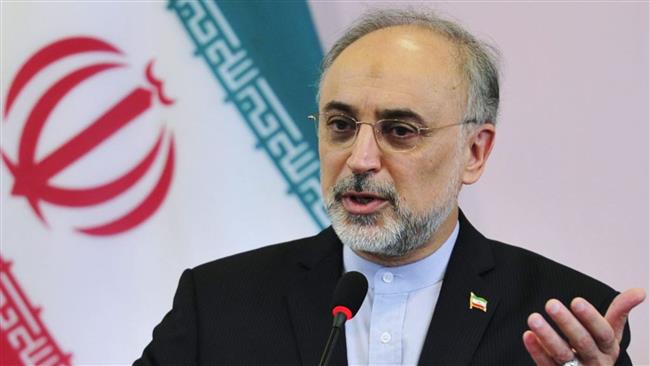“In the construction of nuclear power plants, as I have already stated, we hopefully, within the next few months, will be witnessing the launching of new reactors. Activities are going on and they are expanding even in some areas,” Salehi said in an exclusive interview with Press TV on Saturday.
He added that Iran and Russia have signed agreements for the construction of “two big reactors in Bushehr.”
In November 2014, Tehran and Moscow struck a deal to build eight more nuclear power plants in Iran.
Russia has already built a power plant in Bushehr. The agreement for Bushehr Nuclear Power Plant was finalized in 1995, but the project was delayed several times due to a number of technical and financial issues.
The 1,000-megawatt plant, which is operating under the full supervision of the International Atomic Energy Agency (IAEA), reached its maximum power generation capacity in August 2012.
In September 2013, Iran officially took over from Russia the first unit of its first 1,000-megawatt nuclear power plant for two years.
Salehi said the recognition of Iran’s enrichment activities by the international community, particularly the UN Security Council, was “one very good achievement” within a nuclear agreement reached between Iran and the P5+1 group of countries, dubbed the Joint Comprehensive Plan of Action (JCPOA).
“We are one among the very few or probably the very exceptional countries that its enrichment activity has been recognized by an international body such as the UN Security Council,” the AEOI head said, adding, “One of the achievements within this framework is the fact that we were able to sell or we got this opportunity to sell our enriched uranium and get in return natural uranium or the yellowcake.”
He described JCPOA as a “good deal” that allows Iran to enter the club of countries that can enrich uranium and sell it at global market.
Iran and the five permanent members of the UN Security Council – the United States, France, Britain, China and Russia – plus Germany started to implement JCPOA on January 16.
After JCPOA went into effect, all nuclear-related sanctions imposed on Iran by the European Union, the Security Council and the US were lifted. Iran in return has put some limitations on its nuclear activities. The nuclear agreement was signed on July 14, 2015 following two and a half years of intensive talks.
Salehi also said Iran and the IAEA have entered into a new phase in cooperation and urged the body to remain impartial.
“The IAEA, being the sole verifying body, needs to keep its integrity and impartiality. Otherwise, its credibility will be questioned,” the Iranian official stated.
